|
Send an e-gift that supports inclusion!
Remember someone special on Valentine's Day, a birthday, or any occasion, with an e-gift and help the new National Center on Disability in Public Health include people with disabilities. When you give an e-gift to an important person in your life, you are helping to include people who have disabilities! Give an e-gift today!
National Center on Disability in Public Health Webinar Series
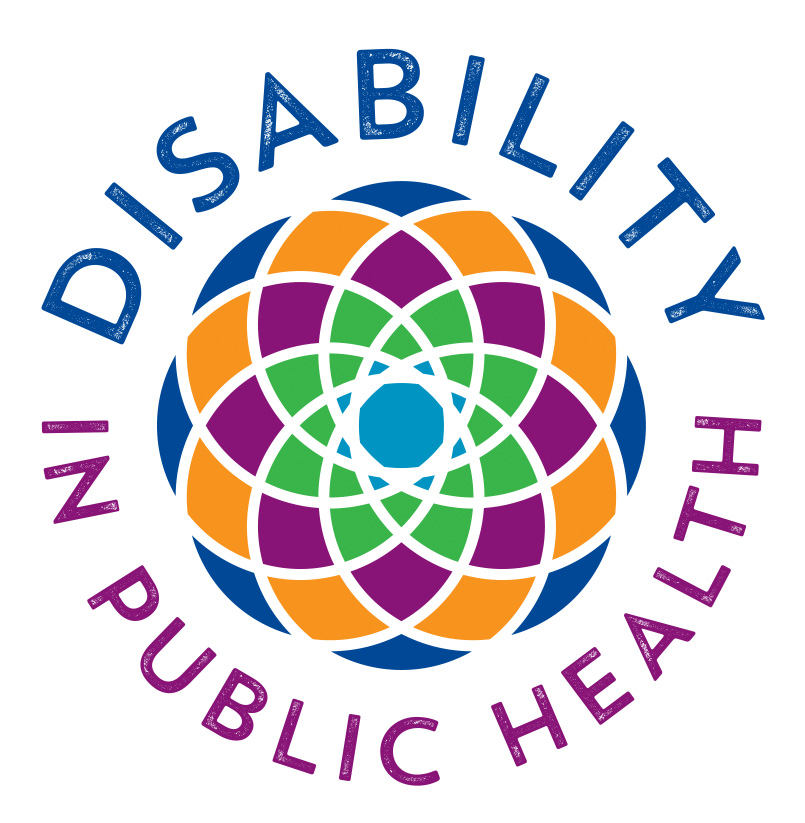
A three-part webinar series to launch AUCD's new National Center on Disability in Public Health took place over the last month. These webinars focused on; evidence-based strategies of the National Center on Disability in Public Health and how participants can be involved; evidence-based approaches to build capacity towards inclusion of people who have disabilities in health promotion efforts; and management strategies that support inclusion and action plans that sustain change. Certificates of attendance and CHES credits are offered to participants, who both attended the live webinar and listen to the archives.
Webinar 1:National Center on Disability in Public Health and YOU!
Webinar 2: Building Capacity to Include People Who Have Disabilities in Health Promotion
Webinar 3: Sustaining Change & Inclusion
Work with Us
Need help with Disability Inclusion? Set up an introductory call with one of our team! We'll share evidence-based strategies that work!
AUCD News & Events
2019 AUCD Leadership Academy Informational Webinar
Thursday, February 14, 2019 4:00 pm - 5:00 pm ET
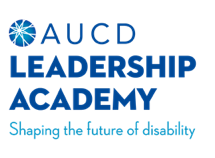
Interested potential applicants may join to interact with AUCD Leadership Academy faculty and alumni. The webinar will feature a brief overview of the 2019 Academy curriculum and timeline. Discussion will include reflection on impact of leadership work and intentional action on personal and professional trajectories. Register for the webinar.
AUCD for ALL 2019 Gala: Celebrating Leadership in Civil Rights
Tuesday, March 19, 2019 6:00pm-10:00pm ET, Washington, D.C.
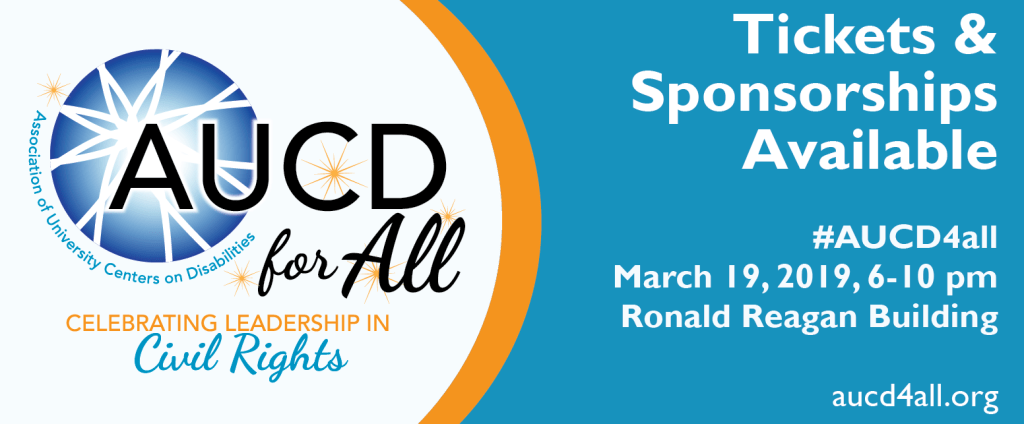
Join the Association of University Centers on Disabilities (AUCD) on March 19, 2019, for its annual AUCD for All Gala to celebrate Leadership in Civil Rights. The core civil rights vision of the ADA and other disability rights laws informs the approach we take to improving the lives of children and adults with disabilities and their families. Join us!
Disability Policy Seminar 2019 and AUCD Policy Forum
Sunday, April 7, 2019- Wednesday, April 10, 2019, Washington, D.C.
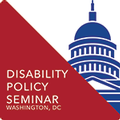
The Disability Policy Seminar is the premier opportunity to cultivate champions on Capitol Hill and advance the grassroots movement for people with intellectual and developmental disabilities. Join AUCD, the Arc, AAIDD, NACDD, SABE, and UCP as we learn about and advocate for access to health care and community living supports, and bedrock civil rights protections. Continue Reading...
Access to Healthcare
New Resources for Use with the National Standards for Systems of Care for CYSHCN: E-Learning Modules, Case Studies, and Tip Sheets

The Association of Maternal & Child Health Programs, in partnership with the National Academy for State Health Policy (NASHP), has released new implementation resources for use alongside the National Standards for Systems of Care that strive to serve the nation's 14.2 million children and youth with special health care needs (CYSHCN). Continue reading...
Responsive Practice: Providing Health Care & Screenings to Individuals with Disabilities
 This online, on-demand helps health care providers to describe disparities in health experienced by people with disabilities; recognize barriers people with disabilities face when accessing health care & preventive services; and acquire strategies & approaches to provide disability-competent, responsive care. Free for a limited time! Click here for training information... This online, on-demand helps health care providers to describe disparities in health experienced by people with disabilities; recognize barriers people with disabilities face when accessing health care & preventive services; and acquire strategies & approaches to provide disability-competent, responsive care. Free for a limited time! Click here for training information...
RTC:Rural Health My Way App in Pilot Phase
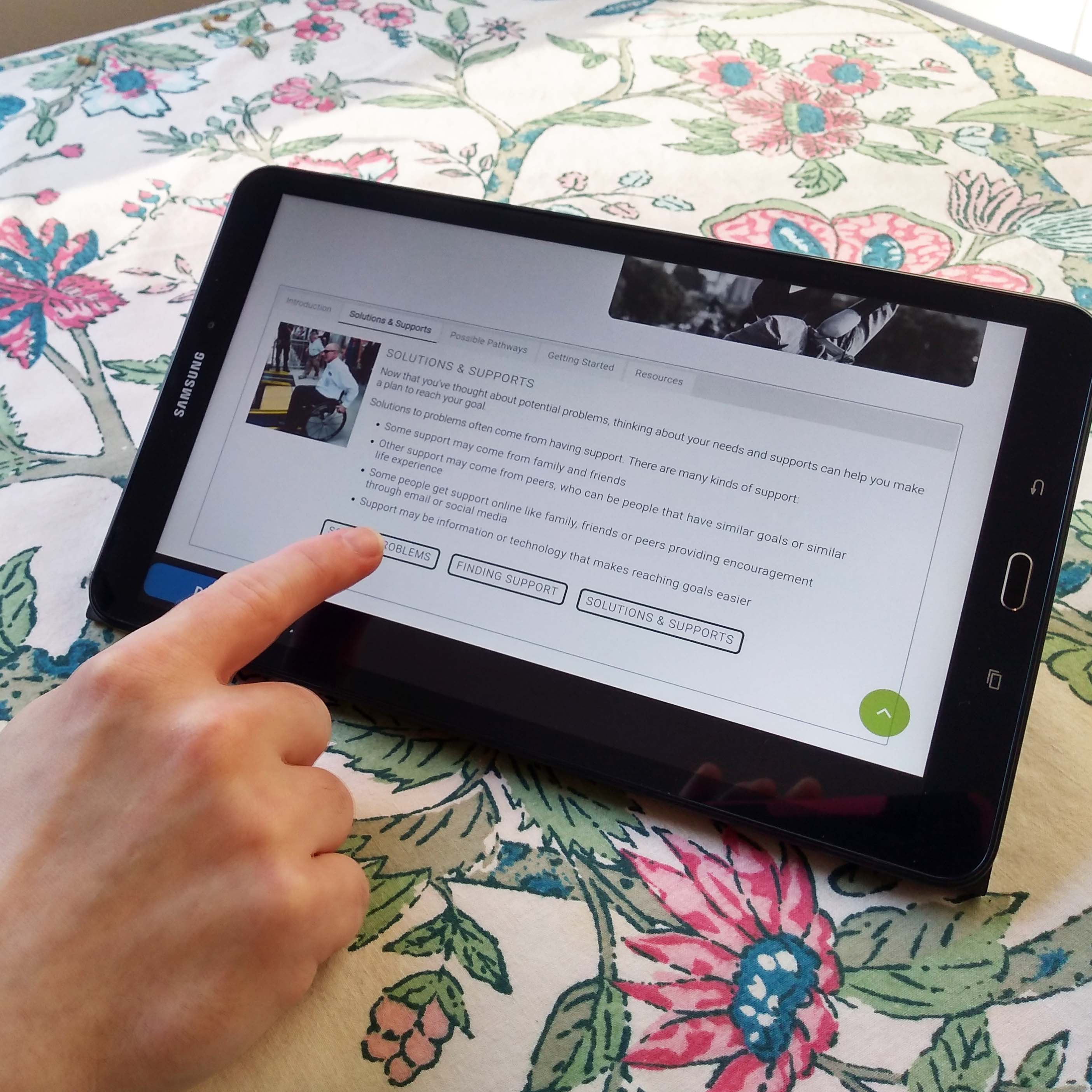
For people with disabilities in rural communities, it can be hard to access health care. Lack of services, distance, or lack of transportation can be substantial barriers to receiving adequate health care and preventative health care. Self-management health practices could help reduce the need for acute-care medical services for those in rural areas. To help address this, researchers at RTC:Rural have developed a health promotion app called Health My Way. The app, for tablet use, guides users through health promotion content derived from the Healthy Community Living program. Health My Way allows users to explore up to 22 content areas including topics such as Disability Identity, Goal Setting, Healthy Relationships, and Eating Well. Users are also matched with a health coach who meets with them either in person or via telephone to provide to review the program and provide accountability and support. Continue reading...
Developmental Monitoring
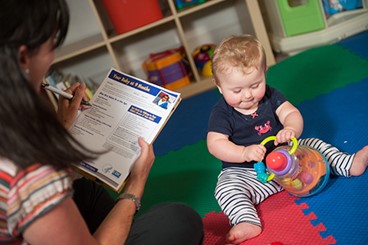
Promoting Development Monitoring in Three States: Collaborative Approach through "Learn the Signs. Act Early" Ambassadors
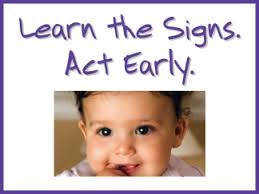 About 17% of children under 18 have a developmental disability, yet most children with developmental delays enter kindergarten without concerns having been identified or addressed through early intervention (Boyle et al 1994, CDC 2012). Parents are often the first to notice a developmental concern but may not know about services or be told to "wait and see" (Raspa et al, 2015). Act Early Ambassadors work within a cohort of state and territorial leaders to support national, state/territorial, and local activities to improve early identification of developmental delay and disability through the promotion and integration of CDC's "Learn the Signs. Act Early." (LTSAE) messages and materials across their state. Yetta Myrick, SunYoung Ahn, and Deana Buck took a collaborative approach to expand the impact of the LTSAE campaign in the District of Columbia and the two neighboring states in their first regional webinar. Continue Reading... About 17% of children under 18 have a developmental disability, yet most children with developmental delays enter kindergarten without concerns having been identified or addressed through early intervention (Boyle et al 1994, CDC 2012). Parents are often the first to notice a developmental concern but may not know about services or be told to "wait and see" (Raspa et al, 2015). Act Early Ambassadors work within a cohort of state and territorial leaders to support national, state/territorial, and local activities to improve early identification of developmental delay and disability through the promotion and integration of CDC's "Learn the Signs. Act Early." (LTSAE) messages and materials across their state. Yetta Myrick, SunYoung Ahn, and Deana Buck took a collaborative approach to expand the impact of the LTSAE campaign in the District of Columbia and the two neighboring states in their first regional webinar. Continue Reading...
How to Help Underserved Groups Gain Access to Autism Care
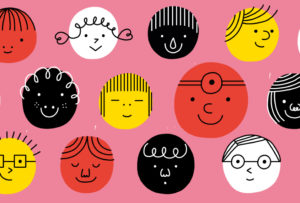
Professionals who specialize in autism diagnosis and treatment often set up shop in specialty clinics or autism centers, typically in children's hospitals or major medical centers - and wait for children with autism to come to them, usually referred by pediatricians or concerned parents. Act Early Ambassador, Dr. Lisa Shulman, shares strategies on how to help underserved groups access autism care. Continue Reading...
Emergency Preparedness
Learn How to Respond and Prepare for the Evolving Threat Environment at NACCHO's Preparedness Summit

NACCHO recently released the 2018 Preparedness Profile Assessment, which describes the landscape of public health emergency preparedness across the US. It's more important than ever to equip preparedness professionals with the knowledge, resources, and relationships needed to prepare for and respond to public health threats. Build this capacity at the 2019 Preparedness Summit. Continue reading...
Nutrition and Healthy Weight
Healthy Weight Research Network Symposium
Friday, April 5, 2019 9:00 am - 6:00 pm ET, Omni Parker House, Boston, MA
Call for Abstracts Due: February 15, 2019
 The 2nd HWRN Symposium will provide a forum for researchers, practitioners, policymakers, people with disabilities, family members, and other interested individuals to learn about current research in the field. Through knowledge translation and dissemination this interdisciplinary Symposium provides an opportunity to shine a light on the need for evidence-based health promotion programs, practices, and policies on behalf of this population. The Symposium will include talks by leading researchers, a poster session to highlight innovative research activities, and a networking reception to enable conference participants to meet and learn from one another. Continue reading... The 2nd HWRN Symposium will provide a forum for researchers, practitioners, policymakers, people with disabilities, family members, and other interested individuals to learn about current research in the field. Through knowledge translation and dissemination this interdisciplinary Symposium provides an opportunity to shine a light on the need for evidence-based health promotion programs, practices, and policies on behalf of this population. The Symposium will include talks by leading researchers, a poster session to highlight innovative research activities, and a networking reception to enable conference participants to meet and learn from one another. Continue reading...
Sexual and Reproductive Health

Pregnancy and parenting Factsheets: For Providers and Women with IDD

The University of Cincinnati UCEDD/LEND Seminars in Evidence-Based Medicine project created two factsheets on pregnancy and parenting for both providers and women with an intellectual developmental disability (I/DD): A Guide for Women with Developmental Disabilities to Prepare for Pregnancy and Providing Prenatal Care for Women with Developmental Disabilities.
Sex Talk for Self-Advocates #4
Wednesday, February 13, 2019, 2:00 - 3:00 p.m. ET
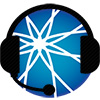 This webinar is part of an on-going series that addresses self-advocate questions about relationships and sexuality. This series is a great learning opportunity for self-advocates, and professionals and paraprofessionals working with individuals with intellectual and developmental disabilities to better understand relationships and sexuality. Continue Reading... This webinar is part of an on-going series that addresses self-advocate questions about relationships and sexuality. This series is a great learning opportunity for self-advocates, and professionals and paraprofessionals working with individuals with intellectual and developmental disabilities to better understand relationships and sexuality. Continue Reading...
Knowledge is Power: Sexuality Education for People with Developmental Disabilities
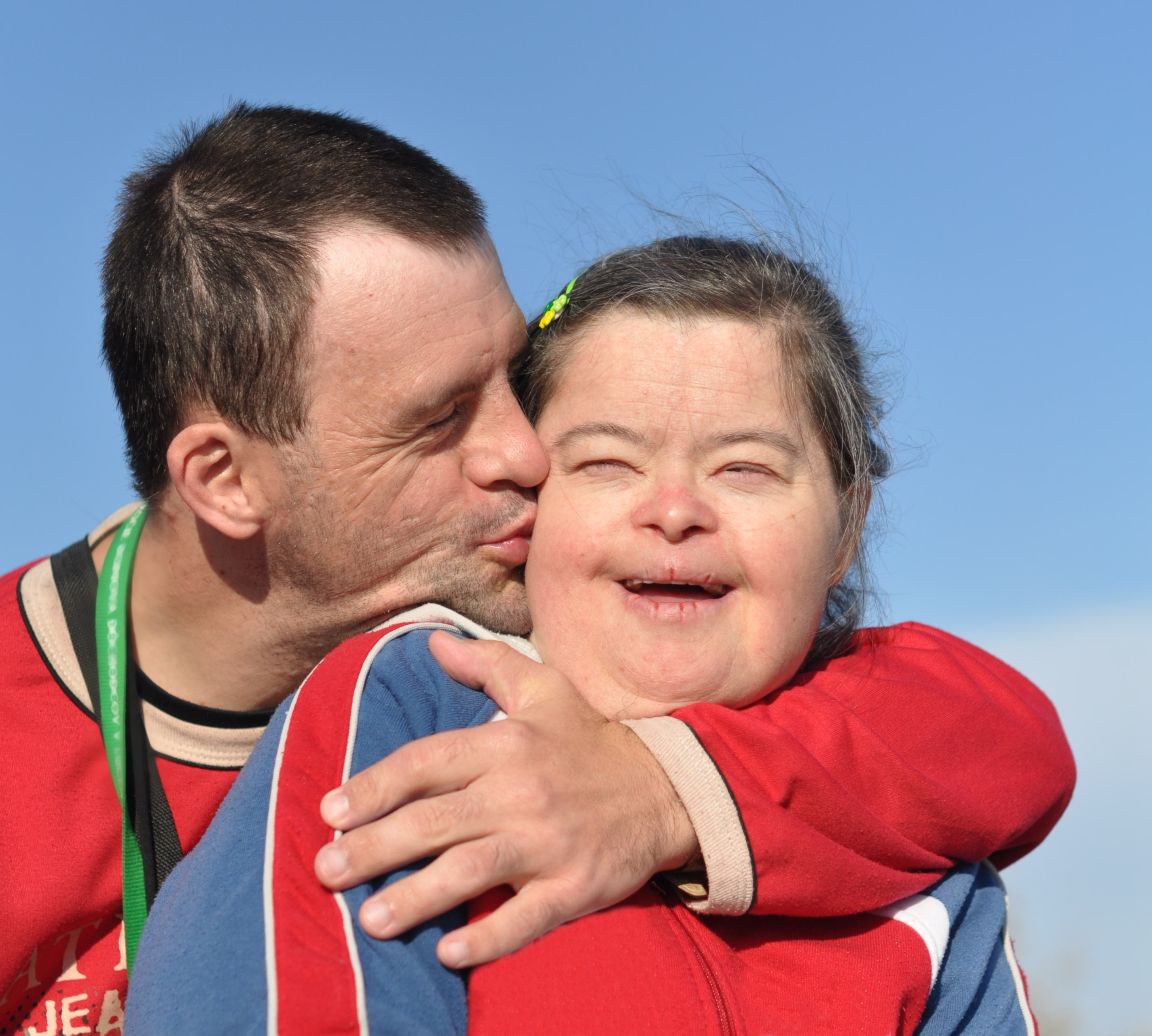
Many professionals who work with people with developmental disabilities often wonder whether they really need to talk about sexuality. Katherine McLaughlin of Elevatus Training shares why is it vital that we talk about this topic. First and foremost, we are all sexual beings! Continue Reading...
Addressing Workplace Sexual Harassment
Tuesday, March 12, 2019 1:30 p.m. - 2:30 p.m. CT
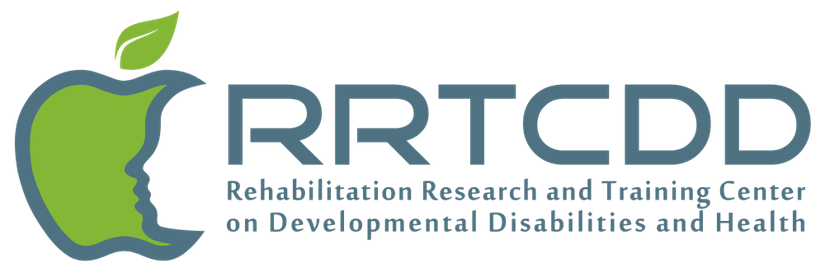 This presentation will discuss the issue of understanding sexual assault against people with disabilities, workplace sexual harassment when it comes to students with disabilities, and how to educate your students around these issues. Attendees will gain a better understanding of how to create a safe workplace for their students, as well as the co-workers. Register Here... This presentation will discuss the issue of understanding sexual assault against people with disabilities, workplace sexual harassment when it comes to students with disabilities, and how to educate your students around these issues. Attendees will gain a better understanding of how to create a safe workplace for their students, as well as the co-workers. Register Here...
Wellness and Mental Health

Wellness and Well-Being

Some people use complementary health approaches to promote general well-being or wellness, rather than to help manage symptoms of a health problem. A 2012 national survey shows that people most often use yoga and dietary supplements for wellness. Wellness has several dimensions, including emotional well-being (coping effectively with life and creating satisfying relationships) and physical well-being (recognizing the need for physical activity, healthy foods, and sleep). National Center for Complementary and Integrative Health Research suggests that people who use complementary approaches for wellness tend to have better overall health, higher rates of physical activity, and lower rates of obesity than those who use complementary approaches to help manage a health problem. Continue Reading...
Other Resources
Montana UCEDD RTC: Rural Publishes Article on Disability Rates in Journal of Rural Health
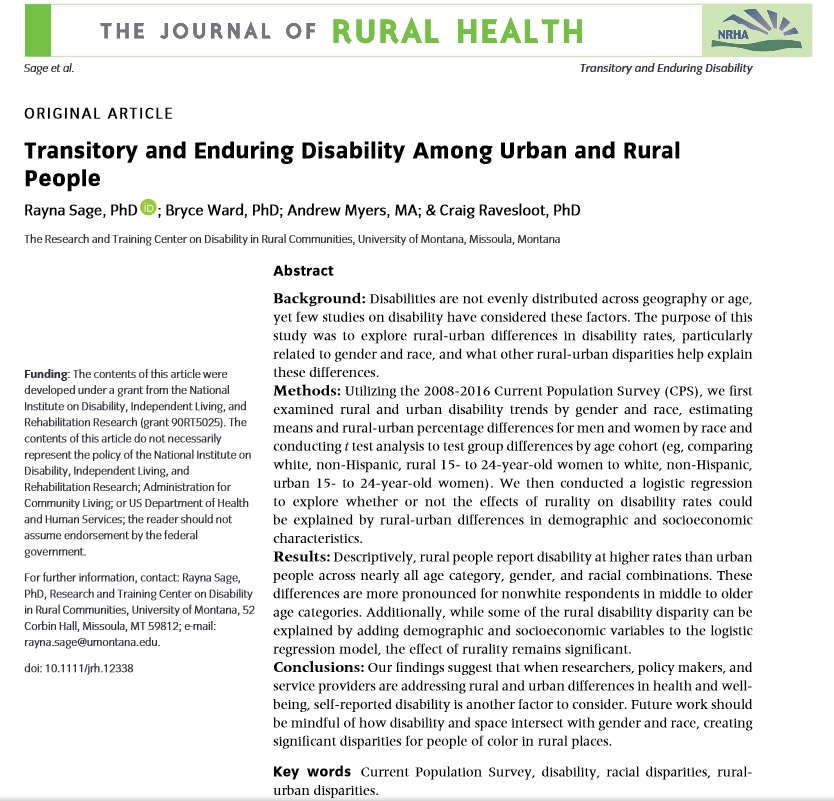
RTC: Rural researchers Dr. Rayna Sage, Dr. Bryce Ward, Andrew Myers, and Dr. Craig Ravesloot recently published an article in the Journal of Rural Health titled, "Transitory and Enduring Disability Among Urban and Rural People." Dr. Sage and Myers are RTC: Rural Project Directors, Dr. Ward is the RTC: Rural Statistician, and Dr. Ravesloot is RTC: Rural Director and Research Advisor. This article examines how disability rates vary by age, gender, and race between rural and urban places. Continue Reading...
Informal Caregivers: Meaningful Support for People with Disabilities
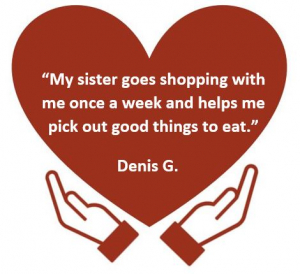
One in five adults acts as a caregiver to a friend or family member who lives in the community and has a disability or health difficulty. Informal caregivers can provide transportation and take care of day-to-day activities like meal preparation. The New Hampshire Disability & Public Health (DPH) project published a new Disability in Focus data brief which highlights the impact of family and informal caregivers and shares policy options to facilitate their contribution.
The Arc/National Center for Children in Poverty Paid Leave Study
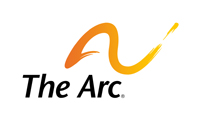
Disability Perspectives on Paid Leave: A Qualitative Analysis of Leave-taking Among Workers Affected by Disabilities or Serious Health Conditions is ground-breaking research on how workers with disabilities and working caregivers of people with disabilities use, need, and benefit from paid family and medical leave. It is one of the only studies to specifically explore whether current paid and unpaid leave policies and programs meet the needs of the disability community. Findings offer key insights on how existing leave policies can become more disability-inclusive and highlight the need for a comprehensive national paid leave policy. Continue Reading...
|


